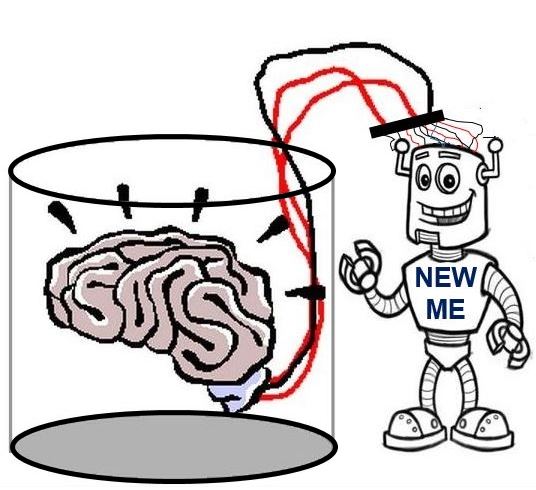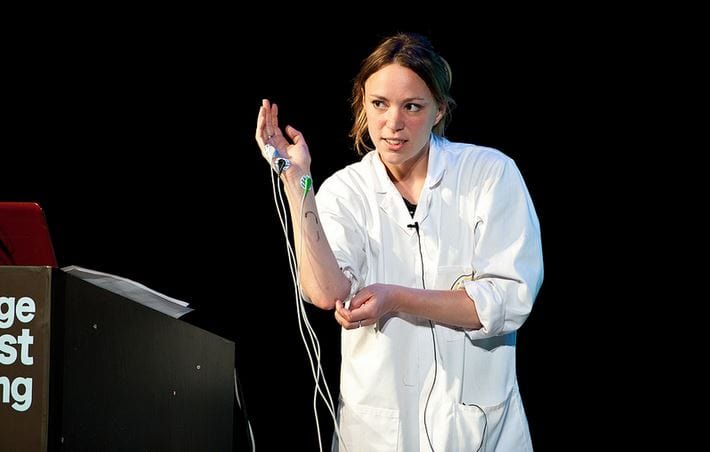One day we should be able to achieve everlasting life by downloading all the data from our brain into a super-computer, a neuroscientist from the University of Cambridge said in a presentation at the Hay Festival in Wales.
Bill Clinton once described the Hay Festival as “The Woodstock of the mind”.
Dr. Hannah Critchlow believes the human mind could exist within a computer programme if one could be made to recreate 100 trillion connections.
During her ‘Busting Brain Myths’ talk, Dr. Critchlow explained that even though the human brain is enormously complex, it works like a huge circuit board. She added that researchers are starting to understand the functions of each part.
 Will we be able to download our minds to a supercomputer robot and create a ‘new me’?
Will we be able to download our minds to a supercomputer robot and create a ‘new me’?
Could we download consciousness?
When asked whether she believed it would be possible to eventually download ‘consciousness’ into a machine, Dr. Critchlow said:
“If you had a computer that could make those 100 trillion circuit connections, then that circuit is what makes us ‘us’, and so, yes, it would be possible. People could probably live inside a machine. Potentially, I think it is definitely a possibility.”
Dr. Critchlow added that humans do not use just 10% of their brains – that belief is a myth. She explained that the misconception had been fuelled by a comment from Albert Einstein who said his brain had been working at a higher level than most humans’ when he discovered the Theory of Relativity.
When the American railroad construction foreman Phineas Gage (1823-1860) had a blasting accident that left a metal pole deeply embedded in his skull, but still managed to function initially, despite losing much of his brain’s left frontal lobe, people concluded we do not need large parts of our brain.
According to Dr. Critchlow, the human brain is ‘ticking over’ day and night. However, it only increases power to specific areas when they are needed, otherwise the whole circuit would ‘blow a fuse’.
 Last year, Dr. Critchlow was named as a Top 100 UK scientist by the Science Council for her work in science communication.
Last year, Dr. Critchlow was named as a Top 100 UK scientist by the Science Council for her work in science communication.
Dr. Critchlow said:
“After a year of so it became clear that Phinas Gage had suffered serious damage, but by then this myth had gained momentum. The brain weight is about 1.5 kg, and 2% of the body, and yet it is greedy and takes about 20% of all energy consumption.”
“We are about 100 billion nerve cells and the most complicated circuit board you could imagine, Those resources use electricity. If you were using all of your brain all of the time you would effectively blow a fuse. Your brain has evolved to do a low level ticking-over.”
When a person wants to do or think about a particular thing, or feels something in a certain way, the brain ramps up power to those relevant parts of the brain.
The brain is continuously in a low gear, even when we are asleep. “MRI scans have also shown that blood and oxygen increase in those parts of the brain at the same time,” Dr. Critchlow said.
Dr. Critchlow believes that the ‘myth’ that left-handed people are more creative may actually be true, saying that some evidence points to this being the case.
Regarding the Hays Festival, Dr. Critchlow said:
“My first time at Hay! And what a romping Festival! The audiences are warm and interested, with intriguing questions and comments. A thoroughly enjoyable experience and I hope to return in the future.”

